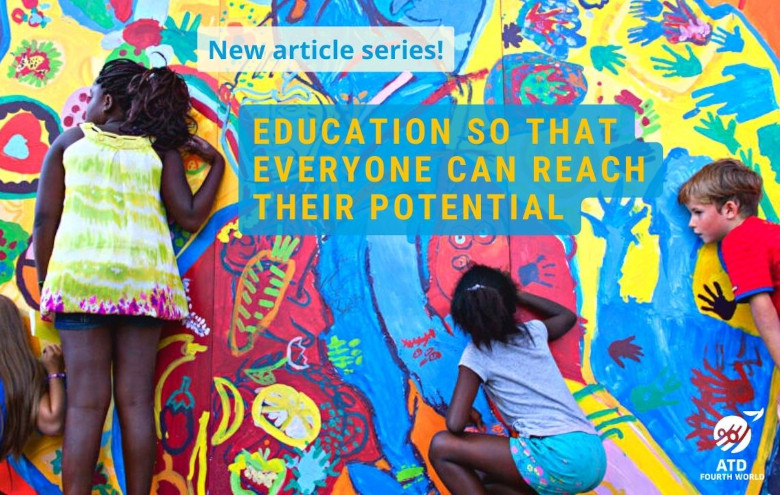A Campaign to Establish a Secondary School in a Rural community in Brazil

![]() Reading time 3 minutes
Reading time 3 minutes
Since the early 2010s, access to quality education for all has been at the heart of ATD Fourth World’s priorities. In this series, you will learn about the work of ATD Fourth World teams in education, including early childhood education.
These accounts tell the story of ATD Fourth World initiatives and demonstrate the teams’ collaboration with children, families, and communities.
We will explore the work of teams dedicated to supporting specific aspects of children’s lives and development. One team aims to reinforce family ties, another assists with children’s schooling and academic success, while another contributes to the cultural enrichment of neighbourhood children…
Each of these narratives threads together to form a vibrant framework for a society that can offer quality education for all, including children in poverty.
An account from Brazil
The village of Mirantão and its surrounding valleys form an isolated rural community in the southern part of the state of Minas Gerais in Brazil. When two members of ATD Fourth World Volunteer Corps, Mariana and Eduardo, arrived in the village with their children in 2012, they found that access to education was fraught with difficulties. To study at the secondary level, for example, pupils had to travel by bus to the nearest town. As the journey took two hours each way, this was a huge disincentive. The young couple was determined not to accept the status quo and encouraged parents, teachers, and the entire community to take action to bring about change. After long and patient discussions, a collective vision of education and the role of the school emerged. Little by little the parents came to realize that as a group, they could wield influence. Working with the educational team, they decided to push for a secondary school to be opened in the village so that no child would be denied access to education.
After campaigning for several years and following extensive negotiations with local authorities, they succeeded in bringing secondary education to Mirantão. They were also successful in implementing a new approach to teaching and learning that the staff had been developing since 2015: an approach that prioritized community involvement and mutual support. The school became a center for educational change. Children were encouraged to focus on areas of personal interest in order to stimulate their curiosity and self-motivation, and local knowledge was recognized and valued. Members of the community were able to become involved once again in the educational process, like one grandmother who made peace with her negative experience of school by sharing her knowledge of vegetable gardening with the children and their parents. This willingness of parents and teachers to work together in the best interests of the pupils slowly changed the light in which the school was seen.
But in an unsupportive social and political climate, this ambitious project soon ran into opposition. Under pressure from a small group of reactionary parents, the new approach was suddenly dropped in favor of a return to the traditional system of education. This U-turn reflected the sociopolitical tensions prevailing in Brazil. It also highlighted the crucial importance of building solid alliances both in the community and with the authorities, if our mission is to succeed. Despite this reversal, the Mirantão experience remains a source of inspiration, showing how it is possible for a community campaign to bring about change in education and to give all children an opportunity to fulfil their potential.

